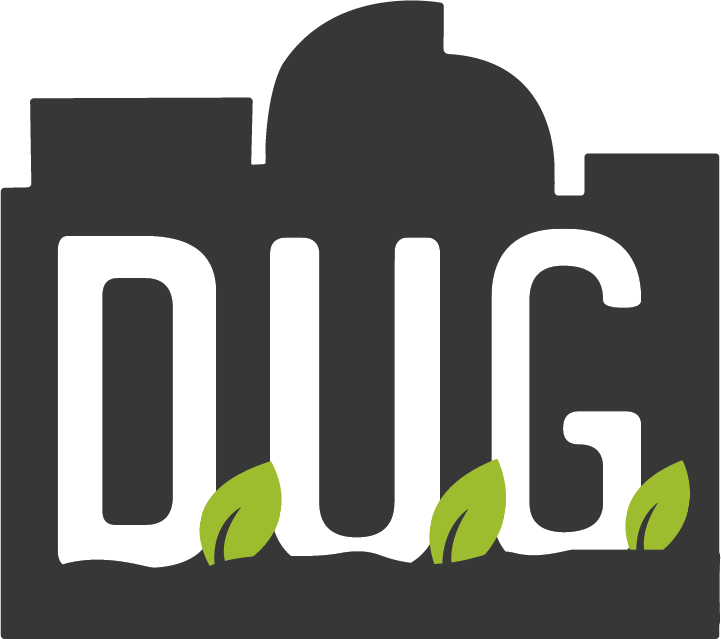The Healthy Seedlings Program is an elementary school garden-based education program that utilizes DUG’s Healthy Bodies, Healthy Gardens curriculum. Our seasonal approach to teaching integrates the garden into the classroom by using lessons aligned to Colorado Academic Standards. These lessons provide experiential learning opportunities for student inquiry and investigation into nutrition and health; earth and life sciences; math and literacy.
In the 2018-19 school year, students participating in the Healthy Seedlings program showed an overall increase in their knowledge of nutrition and gardening, positive attitudes for healthy eating and gardening and their reported consumption of fruits and vegetables. Over 62% of the students were more knowledgeable about nutrition and gardening, and 84% of students reported increases in their consumption of fruits and vegetables. Over 70% of parents have reported preparing the recipes and 69% of parents report they have increased their consumption of fruits and vegetables.
Goals of Healthy Seedlings
- Build connections between healthy bodies and healthy gardens.
- Stress the strength of diversity and respect for those who learn in different ways.
- Increase relevancy of earth and life sciences through hands-on garden and nutrition lessons.
- Increase students’ nutrition and gardening knowledge.
- Increase students’ nutrition and gardening self-efficacy.
- Increase students’ positive attitudes about healthy eating and gardening.
- Increase students’ daily intake of fruits and vegetables.
- Increase students’ participation in and bonding to their community and their peers.
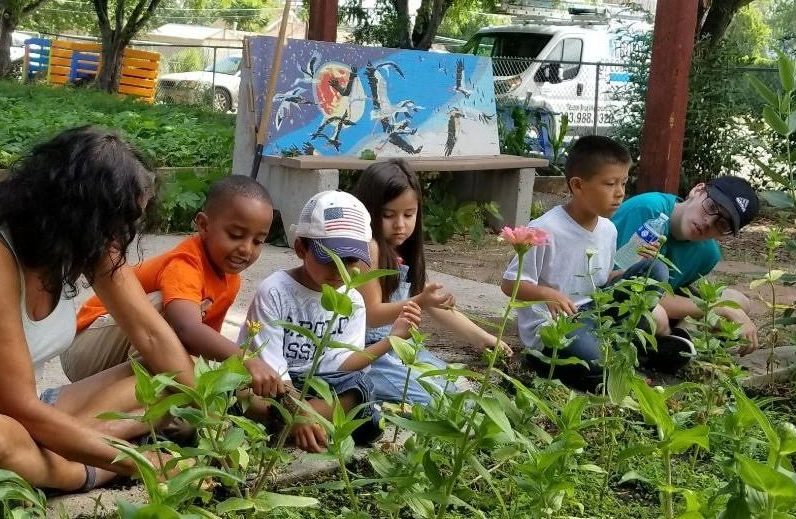
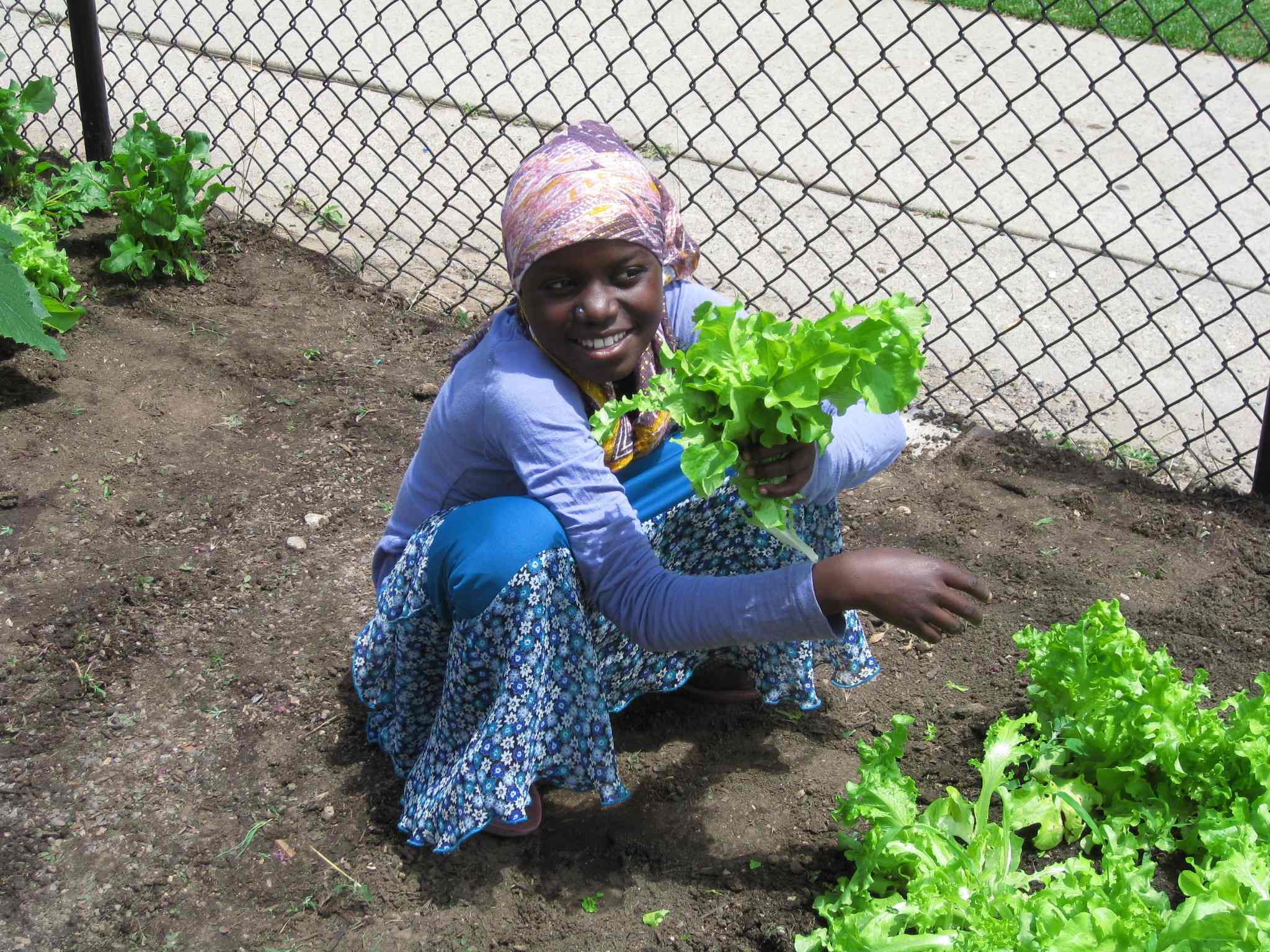
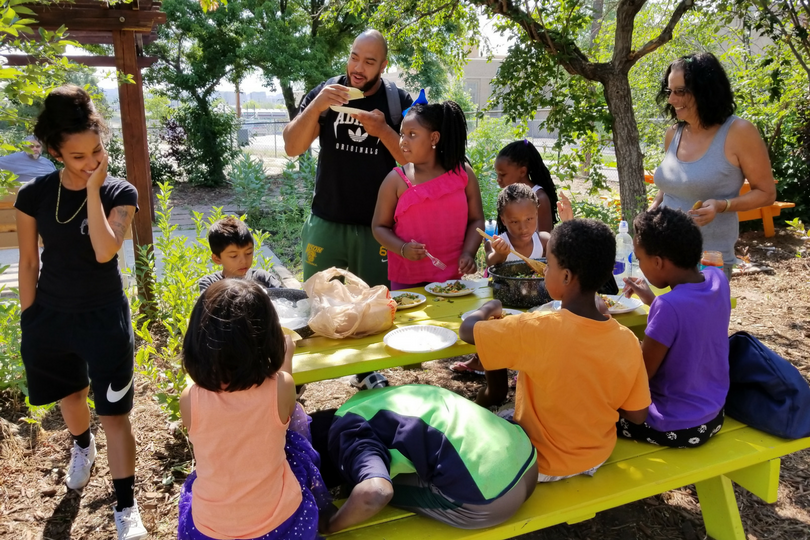
Healthy Seedlings is an elementary school program consisting of 18 hands-on lessons each year. Lessons are taught by DUG staff and volunteers inside the classroom and utilize the school-based community garden as a learning environment. Prior to teaching lessons, volunteers complete the School Garden Cultivator program to learn best practices for working with youth to foster gardening skills and to promote healthy eating.
Lessons reinforce nutrition and health; earth and life sciences; math and literacy academic standards and include a healthy, kid-tested recipe that is appropriate for the classroom, topic and season. Lessons are taught from October to May, with slightly more lessons in the spring semester so that the students have time to connect with the garden and learn how to grow their own food as a means of healthy eating.
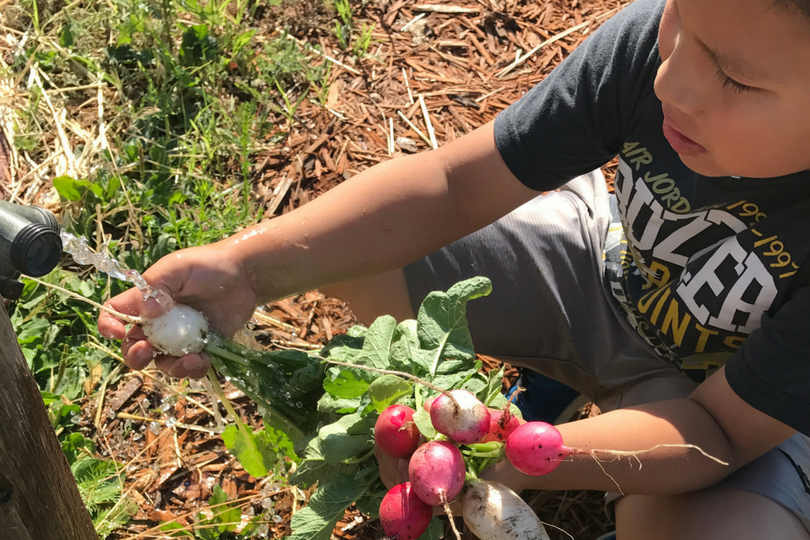
Although the Healthy Seedlings Program is a school-based program, the program provides nutrition education for the entire family. This is accomplished by providing healthy, affordable, and seasonally appropriate recipes, newsletters, and nutrition education reinforcements for all families whose student(s) are participating in the program.
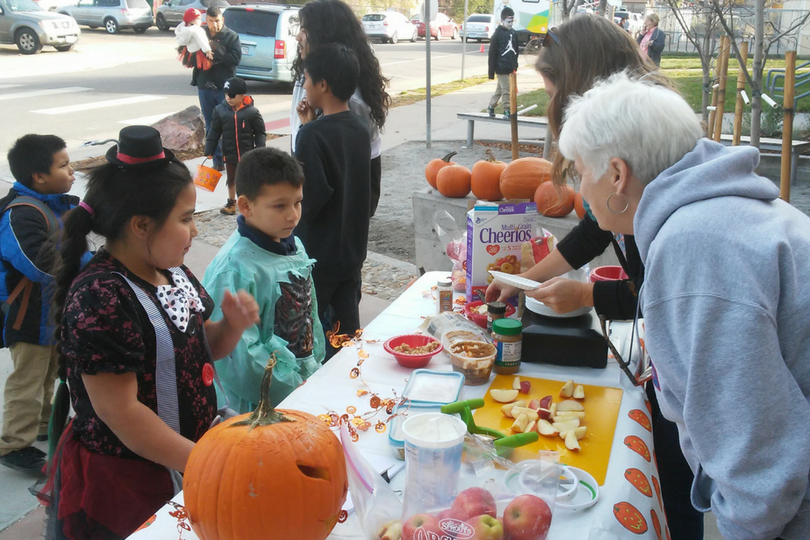
The Healthy Seedlings program reaches beyond the classroom to build social capital and to promote food security and self-determination within the broader community. DUG views community gardens as a site for community engagement, community building, healthy living and an important piece of the larger local food system that provides access to fresh fruits and vegetables to underserved neighborhoods in the Denver metro area. Through the Healthy Seedlings Program, DUG partners with neighborhood organizations and school wellness teams, impacting the community and school food environments.

For the 2019/20 school year the Healthy Seedlings program is implemented in ten classrooms, reaching approximately 250 students and 250 families, within Denver Public Schools.

Since 2015, DUG has partnered with the University of Colorado to evaluate the impact of the Healthy Seedlings program. Students complete a pre- and post-survey to measure nutrition and gardening knowledge, attitudes and behaviors. Parents complete a post-survey to assess the program’s reach to the home environment.

Students participating in the Healthy Seedlings program showed an overall increase in their knowledge of nutrition and gardening, positive attitudes for healthy eating and gardening and their reported consumption of fruits and vegetables. Over 70% of the students were more knowledgeable about nutrition and gardening, and 74% of students reported increases in their consumption of fruits and vegetables. Over 60% of parents have reported preparing the recipes and over 50% of parents report they have increased their consumption of fruits and vegetables.
2018 – 2019 Results
- 250 students received 18 lessons
- 62% of students are more knowledgeable about nutrition and gardening
- 83% of students can choose healthier food options
- 84% of students are eating more fruits and vegetables
- 87% of students know how to grow a plant
- 250 families received 18 healthy affordable recipes
- 70% of families made at least one of the healthy affordable recipes
- 54% of families are growing fruits or vegetables
- 78% of families are eating healthier
- 69% of families are eating more fruits and vegetables
2017 – 2018 Results
- 150 students received 14 lessons
- 76% of students are more knowledgeable about nutrition and gardening
- 72% of students can choose healthier food options
- 69% of students are eating more fruits and vegetables
- 78% of students know how to grow a plant
- 150 families received 14 healthy affordable recipes
- 67% of families made at least one of the healthy affordable recipes
- 57% of families are growing fruits or vegetables
- 82% of families are eating healthier
- 80% of families are eating more fruits and vegetables
2016 – 2017 Results
- 200 students received 14 lessons
- 74% of students are more knowledgeable about nutrition and gardening
- 80% of students can choose healthier food options
- 74% of students are eating more fruits and vegetables
- 85% of students know how to grow a plant
- 200 families received 14 healthy affordable recipes
- 69% of families made at least one of the healthy affordable recipes
- 53% of families are growing fruits or vegetables
- 67% of families are eating healthier
- 55% of families are eating more fruits and vegetables
2015 – 2016 Results
- 185 students received 14 lessons
- 56% of students are more knowledgeable about nutrition and gardening
- 80% of students can choose healthier food options
- 79% of students are eating more fruits and vegetables
- 80% of students know how to grow a plant
- 185 families received 14 healthy affordable recipes
- 75% of families made at least one of the healthy affordable recipes
- 57% of families are growing fruits or vegetables
- 57% of families are eating healthier
- 48% of families are eating more fruits and vegetables
2014 – 2015 Results
- 175 students received 14 lessons
- 68% of students are more knowledgeable about nutrition and gardening
- 89% of students can choose healthier food options
- 78% of students are eating more fruits and vegetables
- 81% of students know how to grow a plant
- 175 families received 14 healthy affordable recipes
- 70% of families made at least one of the healthy affordable recipes
- 58% of families are growing fruits or vegetables
- 67% of families are eating healthier
- 69% of families are eating more fruits and vegetables
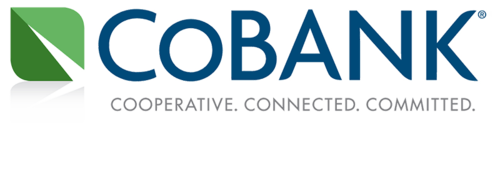
We’d like to thank CoBank, the Fred & Jean Allegretti Foundation and the Peternell Family Foundation for their generous support of the Healthy Seedlings program.

